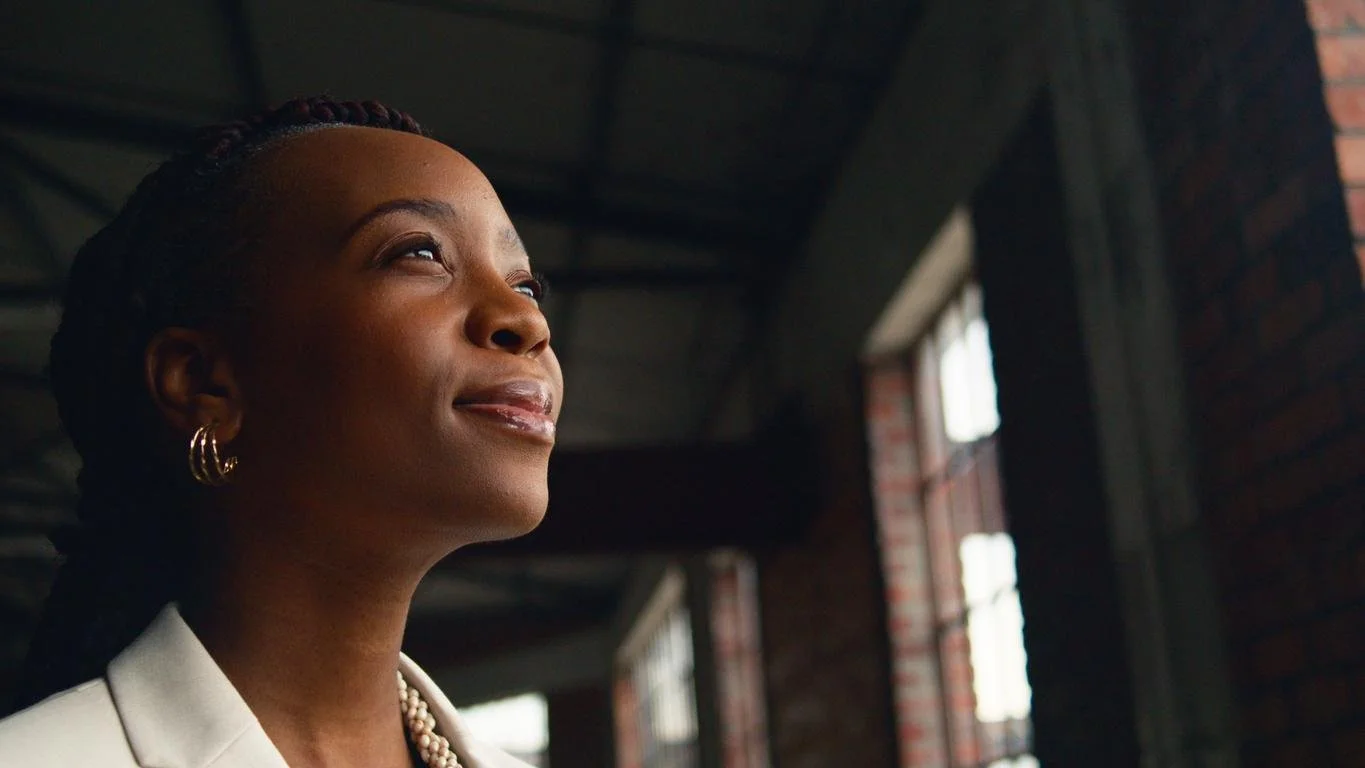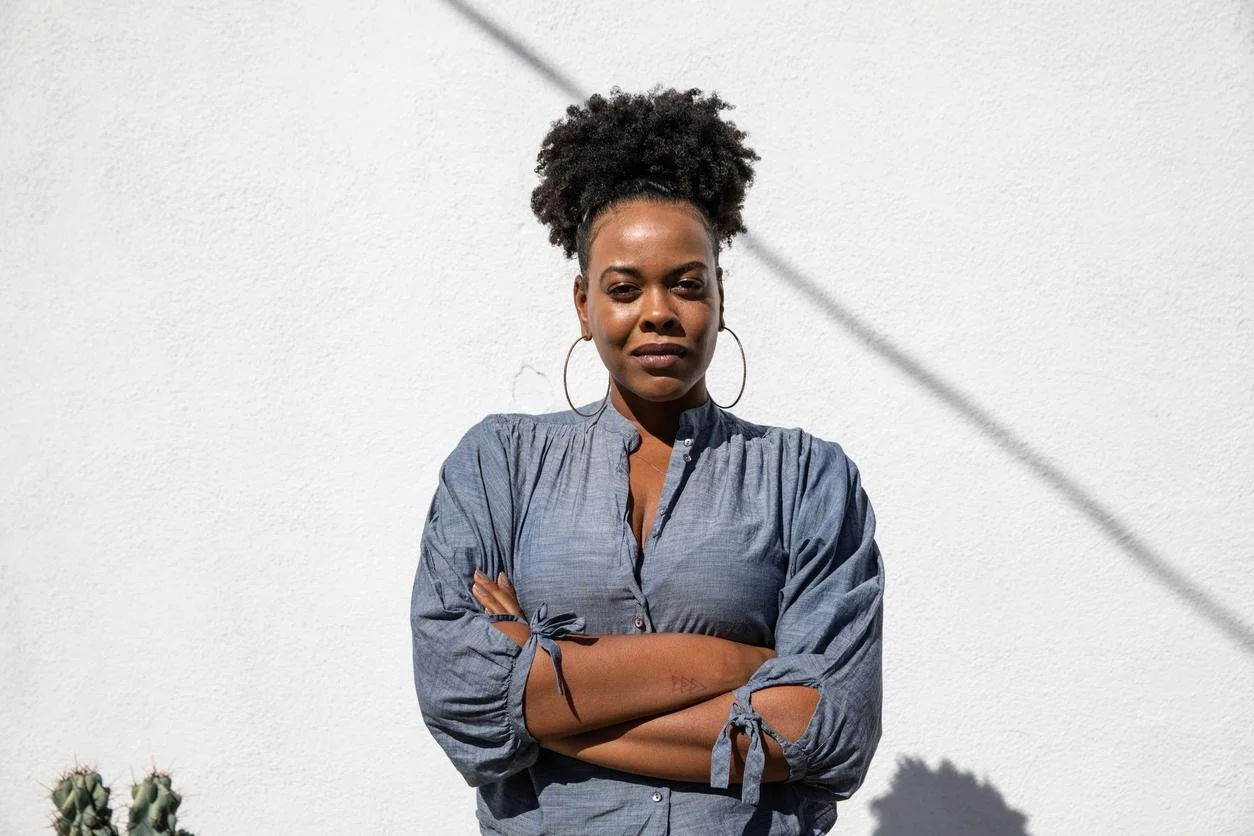Failure Isn’t a Full Stop: Keep Going
Failure is not the opposite of success but a stepping stone to growth, offering valuable lessons that pave the way for future achievements. We discuss it here!
Photo Credit: Meeko Media via iStockPhoto.com
By: Jamila Gomez
First things first: failure doesn’t define you. It’s not the period at the end of your story; it’s a comma. Messed up on a project at work? Got ghosted after putting yourself out there? Launched a side hustle that flopped? Cool. That just means you’re doing something. The people who never fail are the ones who never try.
The trick is to stop seeing failure as a reflection of your worth and start seeing it as part of the process. Every success story you’ve ever heard is full of “almost didn’t make it” moments.
The Lesson in the L
Here’s the secret sauce: failure is only a waste if you don’t learn from it. When something doesn’t work out, ask yourself why. Was it the approach? The timing? The effort? Take a hard look at what went wrong—not to beat yourself up, but to figure out how to move differently next time.
Think about it like this: every time you fail, you’re gathering data. That “bad” relationship taught you what you don’t want. That “lost” job showed you what kind of environment you thrive in. That “failed” business idea taught you a skill you’ll use in your next venture. The L isn’t a loss; it’s a lesson.
Keep It Moving
The key to failing forward is momentum. Don’t let fear of failure paralyze you. If something doesn’t work out, pivot and try again. Successful people aren’t the ones who never fail—they’re the ones who keep going, even after they fall flat on their face.
Picture this: you’re riding a bike. If you stop pedaling, you fall over. But if you keep moving, even at a slow pace, you stay balanced. Life works the same way. Keep pedaling, even when the road gets bumpy.
Failures That Built Legends
Need proof? Look at some of the greatest success stories:
• Michael Jordan didn’t make his high school varsity basketball team on his first try. Now he’s literally synonymous with greatness.
• Oprah Winfrey got fired from one of her first TV jobs. Fired. From a job in the very industry she went on to dominate.
• JK Rowling got rejected by 12 publishers before someone gave Harry Potter a shot. Now it’s a billion-dollar empire.
These people didn’t stop at failure. They learned from it, adjusted, and came back harder.
Rewrite Your Story
Failing forward means giving yourself grace. You’re going to mess up—it’s inevitable. But how you respond to failure is where the magic happens. You can either sit in the wreckage and throw a pity party, or you can sift through the rubble, grab the tools you need, and start rebuilding.
So, the next time you fall short, don’t get stuck. Get up. Look back, take the lesson, and keep stepping forward. Fail forward, and watch how those L’s start looking more like stepping stones.
Because here’s the truth: failure isn’t the opposite of success. It’s a part of it.
YOU MAY ALSO BE INTERESTED IN:
SHARE TO SOCIAL MEDIA
Don’t Act Like You Don’t Know What You’re Doing
Trusting in your abilities is key to overcoming self-doubt, embracing challenges, learning from failure, and unlocking your full potential for personal growth and success. We discuss it here!
Photo Credit: FlamingoImages via iStockPhoto.com
By: Jamila Gomez
Trusting in your own abilities is crucial for personal growth and success. Often, we underestimate our potential, fearing failure or doubting our capabilities. However, we are usually more capable than we give ourselves credit for.
Self-doubt is a common barrier to realizing your full potential. It can hold you back from taking on new challenges or stepping out of your comfort zone. But trusting in your abilities starts with recognizing your strengths, even in the face of uncertainty. Remind yourself of past achievements, no matter how small. Each success is proof that you are capable of overcoming obstacles and mastering new skills. Often, it’s not a lack of ability that limits you, but a lack of belief in your own potential.
Another important step in building trust in yourself is embracing failure as part of the journey. Mistakes and setbacks are inevitable, but they don’t define your overall competence. Instead, they offer valuable lessons that help you improve. Every challenge you face is an opportunity to learn and grow, making you stronger and more resilient.
Surrounding yourself with positive influences can also bolster your confidence. Seek feedback from mentors, friends, or colleagues who believe in your abilities and can offer constructive advice. Sometimes, others see the potential in you that you might not recognize in yourself.
Ultimately, trusting your abilities involves shifting your mindset. Acknowledge that you are capable of handling challenges, learning new things, and achieving your goals. Believe that you are more capable than you realize, and with persistence, you will continue to surprise yourself with what you can accomplish. Let self-belief fuel your actions and watch how far you can go.
YOU MAY ALSO BE INTERESTED IN:
SHARE TO SOCIAL MEDIA
Things Fall Apart to Build Back Stronger: The Power of Breakdown and Rebirth
Embracing the cycles of falling apart and rebuilding stronger is key to personal growth, relationships, and societal progress, as breakdowns often precede transformation and renewal. We discuss it here!
Photo Credit: Jacob Wackerhausen via iStockPhoto.com
By: Jamila Gomez
In life, the notion that “things must fall apart in order to be built back stronger” is a theme that echoes in nature, relationships, careers, and even within ourselves. While the process of breakdown can be painful, it is often necessary for transformation, growth, and renewal. Just as seeds must break apart to grow into trees, or as bones that heal after breaking become more resilient, falling apart is a natural step in the cycle of life that allows for greater strength to emerge.
Nature’s Cycles: Destruction as a Precursor to Growth
Nature provides us with countless examples of how breaking down is an essential precursor to growth. Forest fires, for instance, are devastating in the short term, but they play a crucial role in revitalizing ecosystems. The heat of the fire releases nutrients stored in dead trees, allowing new vegetation to flourish. Similarly, volcanic eruptions, which seem to bring destruction, often result in new land formations that support vibrant new ecosystems. In each case, the destruction is not the end, but a necessary stage in the process of renewal.
This cyclical process teaches us that breakdown is not inherently negative. It is often a purging of the old to make room for the new, a reordering of things in a way that allows for something stronger, more sustainable, and more resilient to arise.
Personal Growth Through Breaking Down
Just as with natural systems, people too must go through periods of “falling apart” to emerge stronger. Emotional, psychological, and even physical breakdowns can mark the beginning of profound personal transformation.
When we face difficult moments in life—such as the loss of a job, the end of a relationship, or a health crisis—it can feel like our world is crumbling. But it is often in these moments of vulnerability and uncertainty that we discover inner reserves of strength we didn’t know existed. For instance, someone who has lost their job might initially feel devastated, but the experience can push them to explore passions or talents they had previously ignored, leading them to a more fulfilling career.
In this way, personal challenges force us to reevaluate our lives, shed old habits, and make room for new ways of thinking and living. It is through the cracks in our lives that light gets in, revealing deeper truths about ourselves and what we are capable of.
The Phoenix Metaphor: Rising From the Ashes
The metaphor of the phoenix—a mythical bird that is consumed by flames only to be reborn from its ashes—aptly symbolizes the way people and systems can rise from destruction. In many cultures, this image represents the idea that renewal and rebirth often follow periods of profound breakdown or loss.
In terms of personal growth, the phoenix metaphor reminds us that even when we feel as though we have reached rock bottom, there is an opportunity for renewal. When the familiar falls away, we are presented with a blank slate to build a new version of ourselves, one that is often more self-aware, compassionate, and resilient.
Relationships: Breaking Down to Build Better Connections
In relationships, whether romantic or platonic, breakdowns are often necessary to clear out dysfunctional patterns. Conflict can be painful, but it can also serve as a mirror, reflecting the parts of ourselves and our relationships that need healing or adjustment. Misunderstandings, disagreements, or even temporary separations may reveal underlying issues that, once addressed, can result in a deeper connection.
Relationships that never experience any form of breakdown can stagnate. Just like anything else in life, they require change and adaptation to survive. After weathering challenges, couples or friends often find that they understand each other better, communicate more openly, and emerge with a stronger bond.
Building Stronger Systems
On a larger scale, societal structures and institutions also benefit from breakdowns. Throughout history, revolutions, collapses, and crises have often been necessary to spark significant change. When outdated or oppressive systems fall apart, new opportunities for innovation and equity arise.
For example, the economic collapses that have occurred throughout history—though catastrophic at the time—have often led to reforms that create more sustainable and equitable economic systems. The fall of oppressive regimes has historically made way for more democratic or just governments to emerge. In these cases, the breakdown was not a sign of failure, but rather the first step in building something better.
Embracing the Process of Falling Apart
While it is human nature to fear breakdown, it is crucial to remember that it is part of a necessary process. Resistance to change or to the pain of falling apart only prolongs the process and stifles growth. Embracing the discomfort and uncertainty that comes with breakdowns allows us to move through them with more grace and resilience.
In moments of personal struggle, asking questions like “What can I learn from this?” or “How can this experience make me stronger?” shifts the focus from despair to opportunity. By seeing breakdowns as a natural part of life’s ebb and flow, we open ourselves to the possibility of transformation.
The concept of things falling apart before being built back stronger is one of the most fundamental truths in life. Whether in nature, in our personal lives, relationships, or societal systems, destruction and loss often precede growth, renewal, and a stronger foundation. Though the process can be painful and challenging, it is an essential part of transformation.
Just as trees grow back stronger after a fire, or as we emerge from personal crises with a deeper sense of purpose, breakdowns allow us to evolve into stronger versions of ourselves. By embracing the inevitable cycles of falling apart, we can rebuild with more resilience, wisdom, and strength than ever before.
YOU MAY ALSO BE INTERESTED IN:
SHARE TO SOCIAL MEDIA
Patience: The Art of Waiting Well
Discover how patience and faith work together to help you endure life’s waiting periods, fostering personal growth, resilience, and trust in the right timing. We discuss it here!
Photo Credit: skyNext via iStockPhoto.com
By: Jamila Gomez
Life often feels like a series of waiting rooms—waiting for success, for love, for healing, for answers. In a fast-paced world where instant gratification is the norm, practicing patience and maintaining faith can feel like a tall order. Yet, patience and faith are critical virtues when it comes to enduring life’s inevitable periods of uncertainty and delay. They are not just about waiting passively but about trusting that the right things will unfold at the right time.
Patience: The Art of Waiting Well
Patience is more than the ability to wait; it is the ability to maintain peace and composure during that wait. It is a conscious decision to not let frustration or anxiety take over when life doesn’t move at the pace you want. While the world increasingly encourages us to rush, demanding immediate results and constant forward momentum, patience teaches us that good things often take time to come to fruition.
One of the reasons patience is essential is that it allows time for growth. Just like a seed needs time to grow into a plant, many of the best things in life—whether they be relationships, career success, or personal development—require time and nurturing to mature fully. Rushing through life often results in shortcuts that may offer short-term gratification but fail to provide long-lasting fulfillment. Patience, in contrast, enables us to fully experience the process and become more resilient, wise, and grateful as we wait.
Additionally, patience guards us against making hasty decisions out of fear or impatience. It can be tempting to settle for something less than we deserve when the waiting feels too hard, but those who exercise patience are less likely to compromise on their values, dreams, or standards. They understand that some things take longer to materialize because they are worth waiting for.
Faith: Trusting the Process
While patience helps us endure the wait, faith gives us the strength to believe that the wait is worthwhile. Faith is trusting that good things are on the horizon even when there is no visible evidence to support that belief. It’s the quiet assurance that there is a purpose to the waiting period, even when we cannot see what it is.
Faith helps to counteract the feelings of doubt and fear that can arise during long periods of waiting. It’s easy to feel anxious when things don’t seem to be progressing, or to lose hope when you don’t get the job, the relationship, or the breakthrough you’ve been hoping for. In those moments, faith reminds us that there is a bigger picture at work, one that we may not fully understand but can trust is for our benefit.
This trust doesn’t mean being passive or doing nothing while we wait. On the contrary, faith encourages us to continue putting in effort, believing that our hard work will eventually bear fruit. For instance, someone looking for a job needs both patience and faith. Patience helps them endure the application process without losing hope, while faith reminds them that the right opportunity is out there, even if it hasn’t materialized yet.
The Synergy of Patience and Faith
Patience and faith are complementary virtues that work hand-in-hand to guide us through life’s challenges. Without faith, patience can feel like mere endurance, a passive waiting that lacks hope. Without patience, faith can lead to frustration and despair, especially when things don’t happen as quickly as we expect. Together, they create a powerful mindset that keeps us grounded and optimistic, no matter the circumstances.
When you combine patience and faith, you cultivate an inner strength that allows you to face uncertainty with calm assurance. This combination also fosters gratitude because it shifts the focus from what is missing to what is present. Instead of constantly striving for more, you begin to appreciate the journey, finding peace in the process of becoming rather than just in the outcome.
The most rewarding things in life often take time, and patience and faith are the keys to waiting well. They help us trust in the timing of life and in the goodness that is yet to come, even when the future is uncertain. By embracing these virtues, we allow ourselves the grace to enjoy the journey, knowing that the destination—no matter how long it takes to arrive—will be worth the wait.
In the end, patience and faith are not just about waiting for good things to happen; they are about becoming the kind of person who can receive and appreciate those good things when they finally do arrive.
YOU MAY ALSO BE INTERESTED IN:
SHARE TO SOCIAL MEDIA
You Are More Capable Than You Realize
Discover how you can unlock your hidden talents and embrace your strength within to overcome the challenges of everyday life and thrive despite adversity. We discuss it here!
Photo Credit: JIgor Alecsander via iStockPhoto.com
By: Jamila Gomez
We all have moments of self-doubt, times when the road ahead seems daunting and we question our ability to navigate it. Maybe it's the fear of a new challenge, the weight of past failures, or the sheer uncertainty of the future. Whatever it is, these feelings can make us forget something profound: we are far more capable than we realize.
The Power of Underestimation
One of the most surprising things about human nature is how often we underestimate our own abilities. We see others achieving great things and assume they possess something special that we lack. The truth is, we all have incredible potential within us, often lying dormant, waiting for the right moment to shine. The key is not to wait for a crisis or a major life event to discover this; it’s about recognizing and nurturing our capabilities every day.
Strength Through Struggles
Think back to a time when you faced a challenge that seemed insurmountable. Perhaps it was a difficult project at work, a personal loss, or a time when everything seemed to go wrong. Yet, here you are, having overcome it. You found the strength, resilience, and creativity to get through it, even if it didn’t feel like it at the time. Each struggle you’ve faced has added a new layer to your strength, shaping you into the capable person you are today.
Embracing the Unknown
The fear of the unknown is a powerful force that often holds us back. We hesitate to take that leap, fearing failure or embarrassment. But the unknown is where growth happens. Every great achievement began as a step into uncertainty. When you embrace the unknown, you tap into resources you didn’t know you had. You start to realize that you can adapt, learn, and thrive in ways you never imagined.
The Role of Self-Belief
Believing in yourself is not about arrogance or overconfidence; it’s about recognizing your worth and your potential. It’s about understanding that you have the ability to learn, grow, and achieve whatever you set your mind to. Self-belief is the foundation of resilience. When you believe in yourself, setbacks become stepping-stones, and failures become lessons.
Unlocking Your Potential
To truly unlock your potential, start by setting small, manageable goals. Each time you achieve one, you build confidence. Over time, these small wins accumulate, and before you know it, you’ve climbed a mountain. Surround yourself with people who encourage and support you. Their belief in you will reinforce your own.
Take time to reflect on your achievements, no matter how small they seem. Write them down, celebrate them, and remind yourself of them often. Each one is proof of your capability.
You Are More Than Enough
You are more capable than you realize. Your potential is not something that needs to be discovered; it’s something that needs to be unleashed. It’s within you right now, waiting for you to recognize it, trust it, and act on it. So, the next time you face a challenge, remember that you have already conquered so many before it. You have the strength, the resilience, and the creativity to overcome whatever comes your way. All you need to do is believe it.
Embrace your hidden strengths and watch as you achieve more than you ever thought possible. The world is waiting for your unique contributions. It’s time to show just how capable you truly are.
YOU MAY ALSO BE INTERESTED IN:
SHARE TO SOCIAL MEDIA
Be Who You Needed When You Were Younger
Be the person you needed to be when you were younger, and empower yourself and others by becoming that person. We discuss it here!
Photo Credit: andreswd via iStockPhoto.com
By: Jamila Gomez
As we grow older, we often find ourselves reflecting on the past—on the person we once were and the experiences that shaped us. There’s a common piece of advice that resonates deeply with many: "Be who you needed when you were younger." This simple yet profound concept encourages us to become the person our younger selves desperately needed, to fill the gaps that were once empty, and to offer the guidance, support, and love that we might have lacked.
But what does it truly mean to embody this idea, and how can we apply it to our lives?
Understanding the Concept: Why It Matters
When we think back to our younger years, we may remember moments of vulnerability, confusion, or loneliness. Perhaps we needed someone to listen, to believe in us, or to simply offer reassurance that everything would be okay. Unfortunately, not everyone had that kind of support.
Being who you needed when you were younger is about healing those past wounds by becoming the source of strength, wisdom, and kindness that you once craved. It's about breaking the cycle and providing for others—and for your current self—the compassion and understanding that might have been missing in your own life.
1. Providing the Support You Longed For
Many of us faced challenges in our youth—feeling misunderstood, struggling with self-esteem, or dealing with difficult circumstances without a reliable support system. As an adult, you have the opportunity to offer others the support you wish you had. Whether it's mentoring a young person, being a supportive friend, or simply offering a listening ear, you can make a significant difference in someone’s life by being present in the way you needed someone to be for you.
2. Embracing Your Authenticity
Growing up, you may have felt pressure to conform to certain expectations or standards, suppressing your true self in the process. Now, you have the power to embrace your authenticity and live unapologetically as the person you are. By doing so, you not only honor your younger self but also inspire others to do the same. Being who you needed when you were younger means showing up as your authentic self, giving others permission to do likewise.
3. Cultivating Self-Compassion
One of the most powerful ways to be who you needed when you were younger is to practice self-compassion. As a child or teenager, you may have been overly critical of yourself, constantly striving for perfection or feeling inadequate. Now, you can offer yourself the kindness and understanding you once needed. Treat yourself with the same love and compassion you would have given to a friend in need. This not only heals old wounds but also fosters a healthier, more resilient mindset.
4. Breaking the Cycle
Many of the struggles we faced in our youth were inherited from the generations before us—patterns of behavior, limiting beliefs, and unresolved trauma. By consciously working to break these cycles, you can create a healthier, more positive environment for yourself and those around you. This might involve setting boundaries, challenging negative thought patterns, or seeking therapy to address unresolved issues. Breaking the cycle is a powerful way to ensure that the next generation doesn't have to carry the same burdens.
5. Inspiring and Guiding Others
Think about the role models you wished you had when you were younger. Perhaps you longed for someone who would inspire you to pursue your dreams, or someone who could guide you through tough times. Now, you have the chance to be that role model for others. Share your experiences, offer advice, and encourage others to believe in themselves. By doing so, you can have a lasting impact on their lives, just as you once hoped someone would for you.
6. Forgiving the Past
Part of being who you needed when you were younger involves forgiving the past—both yourself and others. Holding on to resentment or regret only keeps you tethered to the pain of your youth. By forgiving those who may have let you down and forgiving yourself for any perceived shortcomings, you free yourself to move forward with a lighter heart. This act of forgiveness is not about condoning the past but about releasing its hold on your present and future.
7. Building a Life You Love
Finally, being who you needed when you were younger means building a life that reflects your deepest values and desires. It means pursuing your passions, nurturing meaningful relationships, and creating a life that feels fulfilling and authentic. Your younger self may have had dreams and aspirations that were left unfulfilled—now is the time to honor those dreams and make them a reality. By doing so, you pay tribute to the person you once were and the journey that brought you here.
A Path to Healing and Empowerment
Being who you needed when you were younger is a powerful way to heal the wounds of the past while empowering yourself and others in the present. It’s a journey of self-discovery, compassion, and growth. By offering the support, understanding, and love that you once needed, you create a ripple effect that can transform not only your life but also the lives of those around you.
So, take a moment to reflect on who you needed when you were younger, and consider how you can embody that person today. Whether through acts of kindness, embracing your authenticity, or breaking negative cycles, each step you take brings you closer to the life you deserve and the person you were always meant to be.
YOU MAY ALSO BE INTERESTED IN:
SHARE TO SOCIAL MEDIA
The Power of Learning from Past Mistakes
Embrace your mistakes as essential steps toward growth by reflecting on their lessons, building resilience, and moving forward with renewed purpose and courage. We discuss it here!
Photo Credit: LeoPatrizi via iStockPhoto.com
By: Jamila Gomez
Mistakes. We all make them, sometimes daily. They’re those moments that can make us cringe, feel embarrassed, or wish we could hit the rewind button on life. But what if we reframed how we view our mistakes? What if, instead of seeing them as failures, we began to see them as stepping stones to success, as essential ingredients in the recipe for growth?
The Gift of Reflection
One of the most powerful tools we have as human beings is the ability to reflect. When we take the time to look back at our past mistakes, we’re engaging in an act of self-awareness that is crucial for personal development. Reflection isn’t about wallowing in regret; it’s about extracting wisdom from our experiences.
Think about a time when you made a mistake. Maybe you spoke out of turn in a meeting, made a poor financial decision, or let someone down. Initially, it might feel painful to revisit those moments. However, in that pain lies a lesson. What did you learn about yourself? What would you do differently next time? These questions are the key to transforming a mistake into a learning opportunity.
Mistakes as Teachers
It’s easy to label a mistake as a failure, but what if we started to see mistakes as our greatest teachers? Life doesn’t come with a manual, and the only way to navigate it is through trial and error. Each mistake we make teaches us something invaluable—whether it’s about the world, other people, or most importantly, ourselves.
Consider the mistakes of great inventors, entrepreneurs, and leaders throughout history. Thomas Edison is famously quoted as saying, “I have not failed. I’ve just found 10,000 ways that won’t work.” His perspective is a testament to the power of perseverance and learning. Every “failed” attempt brought him one step closer to success. By embracing mistakes as lessons, Edison was able to invent the lightbulb, forever changing the world.
Building Resilience
Learning from mistakes is not just about gaining knowledge; it’s also about building resilience. Each time we bounce back from a mistake, we strengthen our ability to cope with challenges. Resilience is like a muscle—the more we use it, the stronger it becomes. When we learn to navigate the discomfort of making mistakes, we equip ourselves with the mental and emotional tools needed to face future obstacles with confidence.
Moreover, embracing mistakes as part of the learning process can lead to a more compassionate relationship with ourselves. Instead of harsh self-criticism, we can approach our past missteps with kindness, understanding that making mistakes is a natural part of being human. This shift in perspective allows us to move forward without the weight of guilt or shame, opening the door to self-growth.
Moving Forward with Purpose
The key to truly learning from past mistakes is to use those lessons to inform our future actions. Mistakes should not define us but rather guide us. When we understand where we went wrong and how we can improve, we gain clarity and direction for our journey ahead.
To do this, it’s essential to set intentions for how we want to move forward. What did your mistake teach you, and how will you apply that lesson in the future? By setting specific goals and intentions, we transform our mistakes into catalysts for positive change.
For instance, if a past mistake taught you the importance of time management, you might set a goal to prioritize your tasks more effectively. If you learned the value of patience from a mistake, you might commit to practicing mindfulness in moments of stress. These actions turn lessons into habits, ensuring that our mistakes contribute to our ongoing personal growth.
The Courage to Try Again
Perhaps the most significant lesson that mistakes teach us is the courage to try again. Fear of failure can be paralyzing, but when we’ve already faced and learned from our mistakes, we become less afraid of the unknown. We understand that mistakes are not the end of the road but merely a detour. Armed with this knowledge, we can approach new challenges with confidence, knowing that even if we stumble, we will rise again, stronger and wiser.
Mistakes are an inevitable part of life, but they don’t have to be a source of regret. By embracing reflection, seeing mistakes as teachers, building resilience, moving forward with purpose, and summoning the courage to try again, we can transform our past mistakes into powerful tools for growth. So, the next time you find yourself wishing you could go back and undo a mistake, remember that every misstep is an opportunity to learn, grow, and become the best version of yourself. After all, it’s not our mistakes that define us, but how we rise after falling.

















